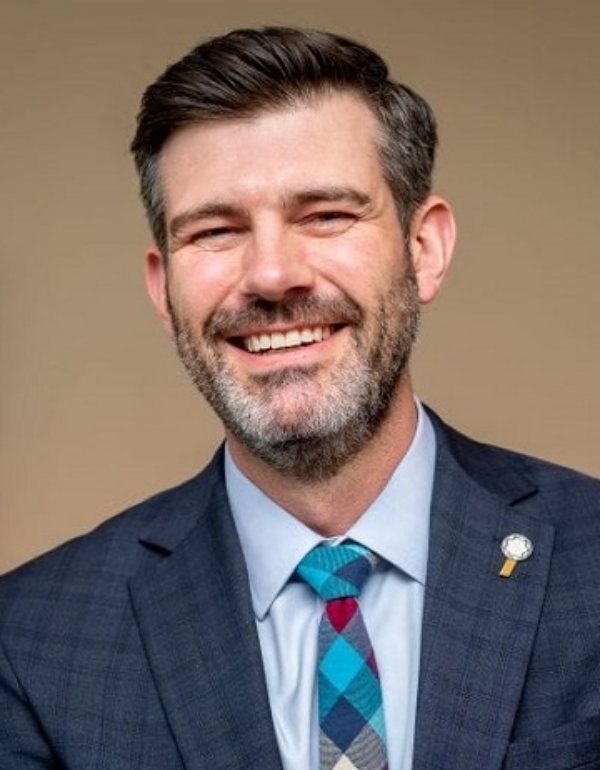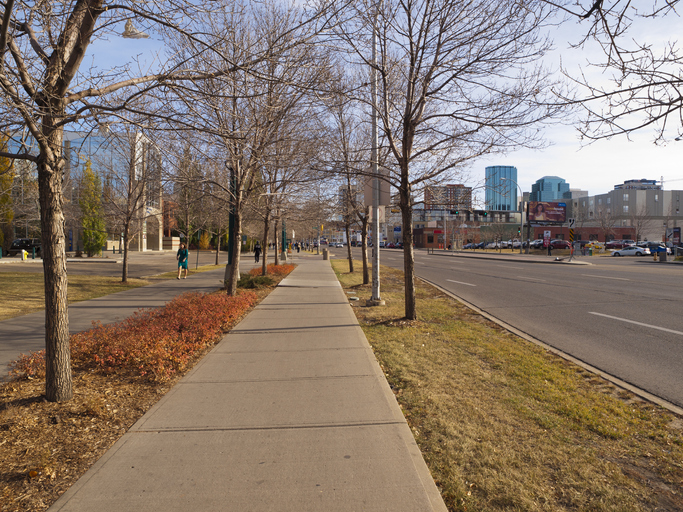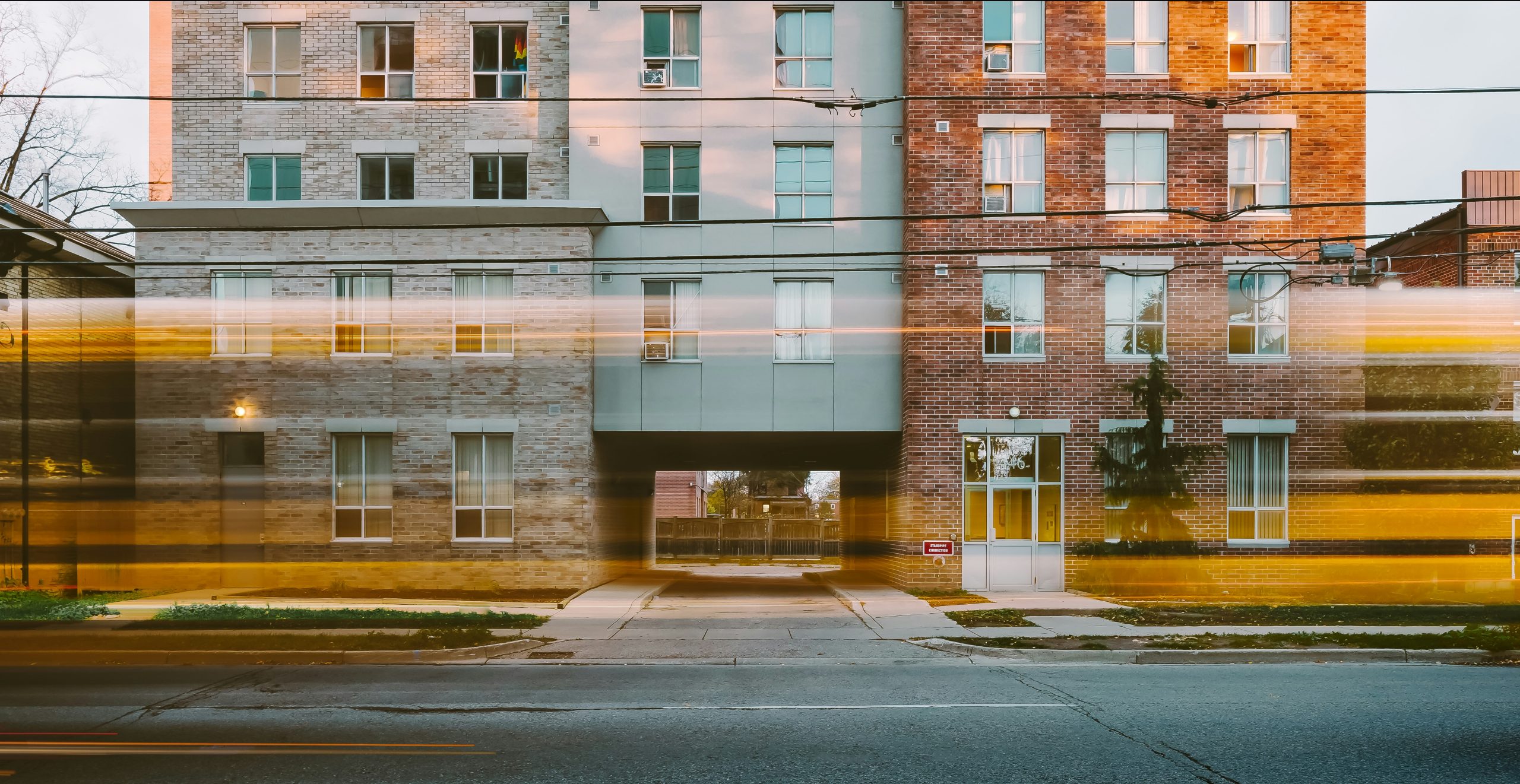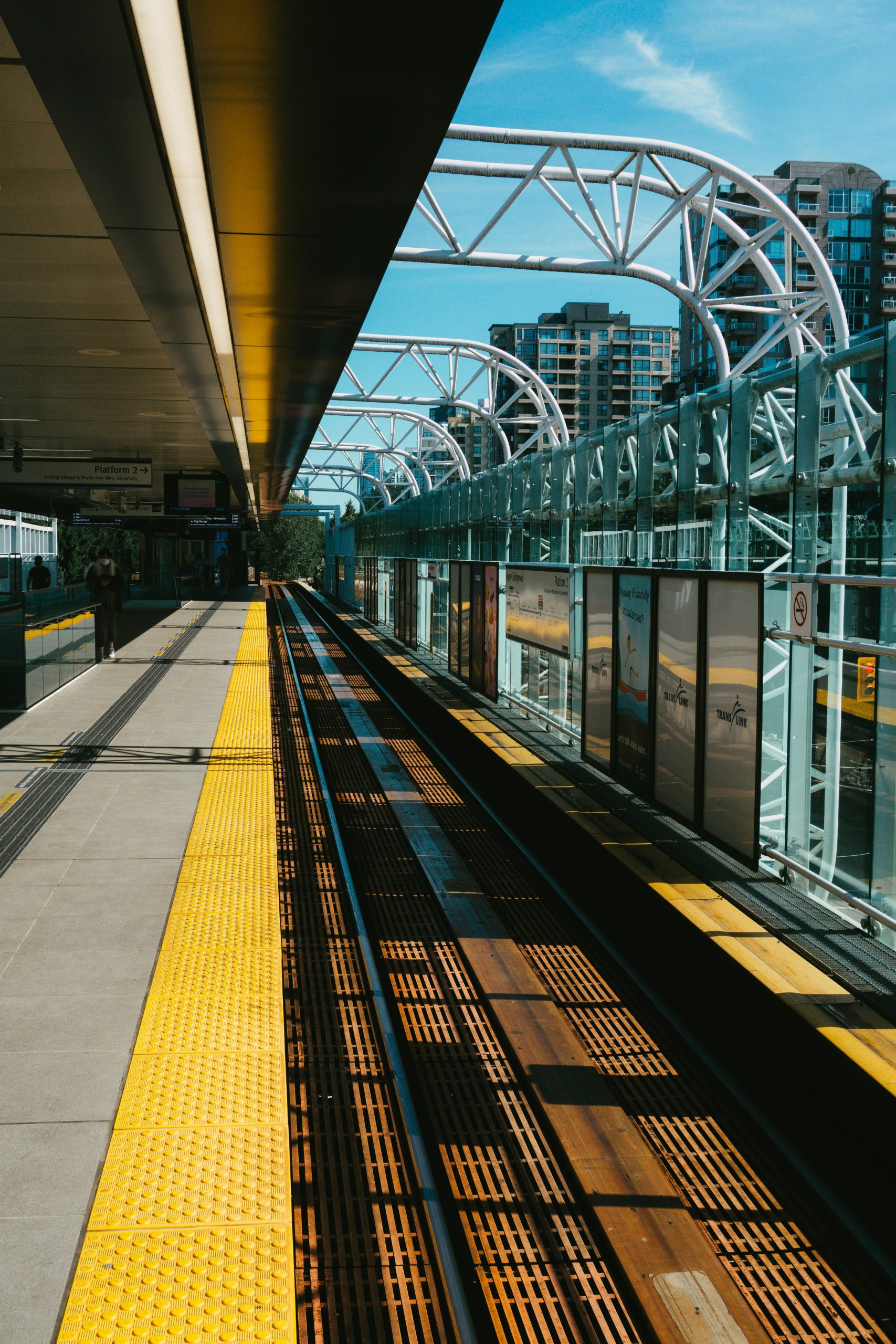Featured Guest
You’ll find this guest among our growing roll of Urban Champions.
-

Don Iveson
Mayor of Edmonton
-

Carole Saab
CEO, Federation of Canadian Municipalities
5 Key
Takeaways
A roundup of the most compelling ideas, themes and quotes from this candid conversation
1. Municipal deficits are structural, not cyclical
Canada needs to address the long-standing fiscal issues faced by municipalities; a situation that has left Canadian cities vulnerable during COVID-19. Cities across Canada are in deep fiscal trouble with their efforts to respond to the pandemic. As an example, the City of Toronto is losing approximately $65 million each week and recovering this loss in revenue would require a 56% hike in property taxes.
2. Cities are operating with both hands tied behind their backs
The lack of constitutionally appointed powers for Canadian municipalities has obstructed their capacity to deliver services in the best of times. In the context of COVID-19, municipalities are now being called upon to provide many of the additional services to help residents weather the storm. Mayor Don Iveson argued that cities are essentially operating with both hands tied behind their backs as they work to respond to the current crisis.
3. Defund the provinces and empower municipalities
Residents already expect local government to deliver many vital social services, such as housing and mental health supports. In many cases, municipalities are also going out of their jurisdiction to drive action on pressing urban issues. To meet align with these realities and resident expectations, Mayor Don Iveson called for the defunding of provincial governments and reallocating resources—and some responsibilities—to the local level.
4. There will be no economic recovery without cities
As the provinces turn their sights to reopening plans, Carole Saab reminded us that cities are at the heart of Canada’s national economic recovery. Municipalities must have a more robust revenue toolkit and greater autonomy at their disposal.
5. COVID presents an opportunity for greater collaboration
Carole Saab argued that COVID has presented the federal and provincial governments with an opportunity for deeper collaboration with municipal governments. With municipal governments at the table, Canada can develop solutions that are localized and place-based, and national in scope.
Additional Reading & Resources
City of Toronto losing $65 million/week (Toronto Star)
Alberta ‘rips up’ deal with the City of Edmonton (CBC)
The three levels of government (Parliament of Canada)
Canadian cities need a new deal (Globe and Mail)
Full Panel
Transcript
Note to readers: This video session was transcribed using auto-transcribing software. Manual editing was undertaken in an effort to improve readability and clarity. Questions or concerns with the transcription can be directed to events@canurb.org with “transcription” in the subject line.
Full Audience
Chatroom Transcript
Note to reader: Chat comments have been edited for ease of readability. The text has not been edited for spelling or grammar. For questions or concerns, please contact events@canurb.org with “Chat Comments” in the subject line.12:04:05 From Emily Wall, CUI Staff: Today’s panel:
Don Iveson, Mayor, Edmonton, AB
https://twitter.com/doniveson
https://twitter.com/yegmayoroffice
https://doniveson.ca
Carole Saab, CEO, Federation of Canadian Municipalities
https://twitter.com/carolesaab
https://fcm.ca/en/about-fcm/executive-leadership-team
12:04:42 From Canadian Urban Institute: Folks, please change your chat settings to “all panelists and attendees” so everyone can see your comments.
12:04:54 From Walter Rogers to All panelists: turning in from London Ontario
12:05:06 From James Ballinger: Hi from Halifax
12:05:17 From Elizabeth Jassem to All panelists: Hello from TORONTO, York Centre.
12:05:19 From Jennifer Brown: Hello from Saint John, New Brunswick!
12:05:20 From Canadian Urban Institute: You can find transcripts and recordings of today’s and all our webinars at https://www.canurb.org/citytalk
12:05:26 From Linicha Hunter to All panelists: Desoto Texas
12:05:26 From Savannah Langkamp: Hi from Raleigh, NC, USA!
12:05:33 From Gordon McBean: Hi from London Ontario – Western U and ICLR
12:05:37 From Patricia Collins: Hi from Kingston, ON
12:05:38 From kate gunn to All panelists: greetings from sunny Edmonton!
12:05:38 From Aimée González Ferriol: Hello from Ottawa!
12:05:39 From Walter Rogers: Hello from London Ontario
12:05:46 From Canadian Urban Institute: Keep the conversation going #citytalk @canurb
12:05:53 From Jennifer Granados: Good morning from Tucson, Arizona!
12:05:55 From Scott Rosts: good afternoon from St. Catharines Ontario
12:05:57 From Stephen Raitz: Hello from Beaumont (namesake of the greater Beaumont region, within which Edmonton is situated)
12:05:58 From Maureen Shenher to All panelists: Hello from Edmonton:)
12:06:14 From Kirsten Goa: Hi from Edmonton
12:06:23 From James Byrne to All panelists: Hello from Peterborough, ON
12:06:26 From Amanda-Rose McCulley: Hi from Kitchener, Ontario!
12:06:28 From Iris Chu: Hi all, tuning in from Edmonton, Alberta, Canada.
12:06:29 From Siri Agrell: Hi from Toronto!
12:06:34 From Scott Erdman: Good morning from Vancouver
12:06:55 From Debra Jakubec to All panelists: Hello, from Edmonton, AB
12:07:18 From Catherine Soplet to All panelists: Hello to everyone from historic Clarkson Village located in SW Mississauga
12:07:40 From Elizabeth Jassem to All panelists: Great to see again Mary and thank you for your CUI terrific pioneering work!! Welcome Carole and Mayor of Edmonton.
12:08:43 From Bin Lau to kate gunn and all panelists: Hey Kate!
12:11:17 From Carolyn Whitzman: Hi from Ottawa!
12:12:07 From Catherine Soplet: Hello from historic Clarkson Village, locate in SW Mississauga, Ontario
12:17:10 From louise reid to All panelists: I’d like to see that 1100 word rant!
12:22:13 From Elizabeth Jassem to All panelists: Great Edmonton.
12:22:20 From Elizabeth Jassem to All panelists: city of Toronto should also finally cut double burocracy. Mayor Tory pledged in his 1st election campaign that HE WILL CUT BuildTO = now CreateTO bc of doubling tasks which we are paying from our taxes.
12:23:18 From Canadian Urban Institute: Welcome new joiners! Just a reminder to please change your chat settings to “all panelists and attendees” so everyone can see your comments.
12:23:20 From Elizabeth Jassem to All panelists: We should do our petition – city needs more money – and before will raise our taxes.
12:24:06 From Elizabeth Jassem to All panelists: we don’t have money to pay 56% hike in taxes. You will bancropt us!
12:24:42 From Elizabeth Jassem to All panelists: we don’t have money to pay 56% hike in taxes. You will bankrupt us!
12:25:54 From louise reid: Absolutely re: any cracks are magnified in ALL aspects of our lives.
12:28:39 From Catherine Soplet: Sharing a post-covid proposal, getting a toehold here in Peel Region …. Restoring tree canopy for climate change research is a proposed activity which is healthful and restorative for people, to recover from COVID pandemic and helps build in green infrastructure and foster community emergency preparedness for climate change. ACER Canada, www.acer-acre.ca is an environmental education charity. Since 1987 ACER has developed programs including planting and geotagging of tree specimens for school yards, conservation areas, and private landowners of residential and commercial land. Sites are publicly accessed, although land ownership can be public or private. Sites are planted with a view to engage local stewardship to collect annual data for international climate change research. In 2019, ACER bundled its Planting for Change school yard planting program into a proposal for Peel Region – Project Crossroads: Planting for Change. The tagline is “Climate justice science, for trees and for people”.
12:28:55 From Catherine Soplet: The tagline is “Climate justice science, for trees and for people”. Read the proposal profile: https://bit.ly/ProjectCrossroads_Profile_Jan-2020 Project Crossroads targets efforts to work with communities in identified low tree canopy “heat islands” where residents experience lower well-being and higher policing events. The areas coincide with Statcan data for higher residency of recent immigrants, and lower income families who experience poverty. Check out the overlay maps, in the presentation to Mississauga Climate Action network for Earth Day 2020. https://bit.ly/ProjectCrossroads_Earth-Day-2020_MCA-Network Funding for 1500 tree specimens for October 2020 planting in Bramalea SNAP areas was announced Sunday, June 14 at ACER’s AGM. For details, read ACER’s press release: https://bit.ly/ACER-2020-AGM_NOTICE-Press-Release
12:29:01 From Guillermo (Gil) Penalosa: Why are Canadian cities allowing the myth that transit is dangerous to prosper? Not ONE COVID outbreak has come out of public transit around the world. Singapore, South Korea, Taiwan allowing over 90% capacity with mandatory mask use, and silence policy, double prevention. BC 70%; Ontario 35%. Hundreds of millions lost in operations that will less funds for health, housing, parks, education, etc. No way to re-open without vibrant public transit.
12:29:11 From Elizabeth Jassem to All panelists: I am NOT even sure how many councilors we need? People are doing so much on e-commerce and e-contacts – webinars- town halls- maybe, our representatives should be CITIZENS DIRECTLY only, with much smaller council to vote for the City at large? But local pieces should be decided and done by local democracy- citizens?
12:30:29 From Michael Roschlau to All panelists: You are right, Guillermo, but it only takes one positive case traced back to transit to blow this out of the water.
12:30:50 From Emily Wall, CUI Staff: Just a reminder to please change your chat settings to “all panelists and attendees” so everyone can see your comments.
12:30:54 From Michael Roschlau: You are right, Guillermo, but it only takes one positive case traced back to transit to blow this out of the water.
12:31:10 From Carolyn Whitzman: How can constitutional role of cities change? Are there any enablers out there?
12:34:11 From Michael Roschlau: Hamburg is unique because it is a separate state within the German federation. Other German cities do not have the same status.
12:36:12 From Guillermo (Gil) Penalosa: Churchill’s “Don’t let a crisis go to waste” later used by Chicago’s mayor in 2008 does not seem to have reached Canadian city leaders. What BOLD changes can take place that would not be taking place if there was no COVID? Most doing nothing, others just advancing actions that were already approved, few doing bold as Montreal’s 200 km protected bikeways. What concrete actions now to have a more equitable & sustainable postCOVID?
12:37:17 From David Crenna: The Mayor’s comments on making rural-urban linkage building are fundamental to making change happen!
12:37:24 From Catherine Soplet: Maybe a way to get protection for cities is to evolve, expand and update the Canada Health Act to mitigate inequities experienced by cities when their residents are unwell. Explicitly addressing ailments which are unique for Women’s health, seniors, youth, newcomers, addiction and mental health — Canada Health Act is a way to hold provincial budgets to account on health transfers
12:37:44 From Catherine Soplet: Fund cities for healthcare
12:40:00 From GC to All panelists: Urban economy needs more partners to drive beyond partisanship. Don is right on. Think about an automatous economic Centre with local-based commercial free-trade zine.
12:40:12 From GC to All panelists: Free trade zones!
12:41:07 From David Crenna: As Carole says, the access for rural and small communities is being quietly constricted, e.g., no buses to hospitals for rural seniors…
12:41:14 From Carolyn Whitzman: Following on Catherine, maybe a rights-based approach to transfer payments? Edmonton has been so strong on Right to Housing, Alberta not so much. Toronto doing much better than Ontario, etc.
12:41:17 From Canadian Urban Institute: Reminding attendees to please change your chat settings to “all panelists and attendees” so everyone can see your comments.
12:41:24 From Elizabeth Jassem: am NOT even sure how many councilors plus their offices we need? People are doing super well so much on e-commerce, e-contacts – webinars- town halls- maybe, our representatives should be CITIZENS DIRECTLY only with shifting 1-2 local office ppl, and with much smaller Council to voting for City at large? Local pieces should be picked up/decided and done by local democracy- citizens?
12:45:34 From GC: Elizabeth is right on! Working remotely in the past 15 weeks in Ontario have turned traditional office work upside down. How can all governments. not only municipalities, operate more efficiently without occupying big office spaces and think about doing the same with less.
12:45:51 From David Crenna: Perception of doing just smaller stuff needs to be addressed, for sure! Links to economic success need to be stressed more!
12:46:18 From Canadian Urban Institute: You can find transcripts and recordings of today’s and all our webinars at https://www.canurb.org/citytalk
12:48:34 From David Crenna: These kinds of comparative effectiveness measures need to be brought together out of their siloes more often, with metrics!
12:50:24 From Canadian Urban Institute: Keep the conversation going #citytalk @canurb
12:54:13 From Elizabeth Jassem: We know, that our Councilor built his/his office new presentence on web thanks to covet (I think) funds help. That’s fine, but when they doing town-halls – we’re (citizens) are muted. When Town Hall was organized by our YC MP, MPP and Councilor – with whom we work great – most of the townhall time went to their own self-services. How we may create more CITIZENS democratic votes on local issues? Switzerland does this in governments? IMAGINE, how much funds we can additionally secure by relying more on direct governing? Smaller local pieces.
12:54:30 From Mayor Don Iveson to All panelists: Devolution, not revolution!
12:54:42 From MARYAM MOMENI to All panelists: Thank you everyone, was very useful.
12:56:54 From Canadian Urban Institute: What did you think of today’s conversation? Help us improve our programming with a short post-webinar survey – https://bit.ly/2Ns1kL5
12:58:03 From Kirsten Goa: Any thoughts on how to frame the narrative?
Here we have a provincial government shouting “Fair Deal” we have many reacting negatively to “New Deal” …
We need different framing but it needs to resonate with citizens values and attachment to place.
Thoughts?
12:58:39 From Kirsten Goa: If we use their framing we’re just reinforcing the province’s narrative.
13:00:31 From David Crenna: Mayor is right that fragmentation in the past has been the weak point.. must grab the new solidarity and run with it!
13:00:40 From Linicha Hunter: like how he said we still at the kids table..so true
13:00:58 From Walter Rogers: Thanks Mayor Iveson. Using the metaphor of cities being at the kids table awaiting for our parents to decide our allowance was excellent.
13:01:16 From Elizabeth Jassem: Why don’t we focus on retooling our cities with creating much smaller 15 mins access walking complete communities – we are working on introducing here, at York Centre – for seniors health village at Downsview as multigenerational community of course, where all needed daily services are accessible within walking distance. No need to take bus, subway or car. Everybody would become more active and healthy, including with much better mental health to all, where/when Accidental meeting neighbours would become a real human pleasure.
13:02:10 From Linicha Hunter: thanks from texas
13:02:25 From Elizabeth Jassem: THANK YOUALL. FANTASTIC. DISCUSION.
13:02:28 From Linicha Hunter: yes
13:02:35 From Iris Chu: Thank you all!
13:02:41 From Mayor Don Iveson to All panelists: Thanks!
13:02:42 From Kirsten Goa: Thank you!
13:02:44 From David Crenna: Thank you!
13:02:44 From Carolyn Whitzman: really great stuff. Keep up the good work, CUI!
13:02:45 From Cherise Roberts: Thank you!



